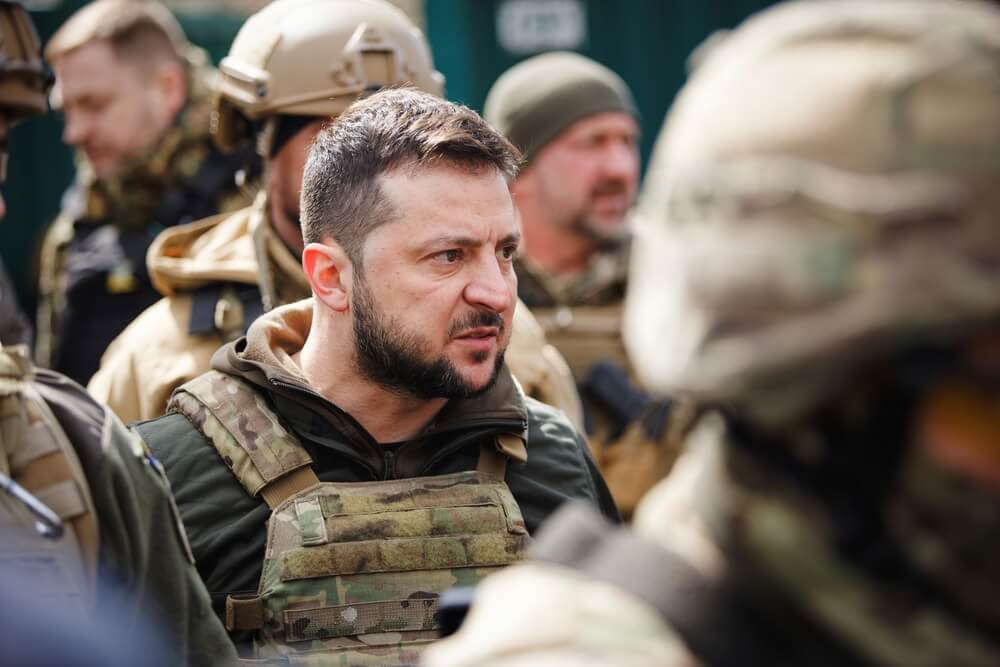Coincidentally, or due to some invisible triggers, several recent episodes in Russia, taken together, reveal the core purpose and identity of Putin’s Russia.
Interestingly enough, if viewed separately, they only show Russia’s despotism, which no longer surprises most people in the free world.
However, when all these episodes are considered together as pieces of a larger puzzle, they reveal Russia’s fundamental characteristics and shed light on what Russia has become after being exposed to Vladimir Putin’s alternative reality.
In addition, a collective evaluation of these episodes provides a description of Russia’s intentions towards the West over the years and reveals Russia’s methods.
Dmitry Medvedev, the former Russian president, summarised these intentions and desires, which Russia has been pursuing for more than two decades, in a recently published Telegram post.
“Harm them in every way in which harm can be done. Harm their economies, their institutions, and their leaders. Harm the well-being of their citizens. Harm their confidence in the future. To do this, we must continue to look for the critical weaknesses in their economies and hit them in all areas. To cause damage everywhere, paralysing the work of their companies and government agencies.”
In his post, Medvedev suggests this in retaliation for the new sanctions, which seem to hurt the Russian economy as much as the West's first sanctions in the first month of war.
What the former Russian president does not say in his post is that everything that is mentioned, Russia has been doing against the West for decades.
Ukrainians are terrorists; Gershkovich is the CIA
Before Dmitry Medvedev made this peculiar statement, or rather confession, Alexander Bortnikov, the head of the Russian intelligence service FSB, said in his public statement that the role of the Ukrainian intelligence in the terrorist attack on Crocus City Hall had been proven.
According to Alexander Bortnikov, a thorough investigation overwhelmingly confirmed and proved the Ukrainian secret service's guilt in the terrorist attack on Crocus City Hall.
The way the Kremlin treats Western journalists working in Russia should provide an explanation of how Russia views its journalists working abroad
Finally, Wall Street Journal reporter Evan Gershkovich faced an official charge of espionage. According to the case material, which is consistent with the Russian legend, Evan Gershkovich was working on behalf of the CIA.
All of the above episodes are different, yet very similar, because they essentially have the same origin. Russia likes to blame others for what it does and what it is guilty of.
Evan Gershkovich is not a CIA agent but simply a journalist. He is now being held hostage by Russian intelligence. However, Gershkovich's whole story can help explain how the Kremlin sees the world.
The way the Kremlin treats Western journalists working in Russia should provide an explanation of how Russia views its journalists working abroad.
Are all journalists spies?
The Kremlin can sincerely believe that Evan Gershkovich is a CIA agent because almost all Russian reporters working for the major Russian news outlets are in one way or another connected to or at least monitored by Russian intelligence.
Many Russian journalists working for major Russian news outlets, travelling around the world to report on various global developments and interviewing various Western politicians and influential figures, are engaged and working intensively to identify vulnerabilities in Western societies in order to help Russian intelligence use these vulnerabilities of the West to Russia’s advantage.
Similarly, the Kremlin may be convinced that Ukrainian intelligence is behind the terrorist attack on Crocus City Hall, because the Kremlin is most likely at least partly behind many terrorist attacks in the West.
 the Kremlin may be convinced that Ukrainian intelligence is behind the terrorist attack on Crocus City Hall, because the Kremlin is most likely at least partly behind many terrorist attacks in the West - Volodymyr Zelensky
the Kremlin may be convinced that Ukrainian intelligence is behind the terrorist attack on Crocus City Hall, because the Kremlin is most likely at least partly behind many terrorist attacks in the West - Volodymyr Zelensky
It is perfectly normal for the Kremlin to use radicals and terrorists against Western countries because the Kremlin has been trying to weaken and undermine the West by using radical extremists long before the war.
Something like the terrorist attack on Crocus City Hall during the war with Ukraine must, in the Kremlin’s world view, be the result of operations by the Ukrainian intelligence because the Kremlin expects others to do what the Kremlin itself would do.
Opposition in Russia, opposition in Europe
Behind the Kremlin's ban on all opposition parties in Russia lies the same philosophy.
The Kremlin was not afraid that the Russian opposition parties would attract too many voters; it was afraid of Western intelligence services.
Russia has spent the last twenty-plus years building and cultivating radical organisations in the Western political landscape
One could come to the conclusion that the "Alternative for Germany" is just a political party with right-wing views. But if we look at their explanation of why they obstructed President Zelensky's recent address to the Bundestag, as well as the proven previous incidents of Russian money flowing into this party, we can come to the conclusion that this party's work fits the Kremlin's modus operandi over the last two and a half decades in Western Europe.
Russia has spent the last twenty-plus years building and cultivating radical organisations in the Western political landscape, creating political forces and various movements to weaken and damage their democracy.
Putin's Russia has nothing to prove. If Vladimir Putin believes in it, it is enough. When Vladimir Putin is convinced of something, it becomes Russia's truth and fact.